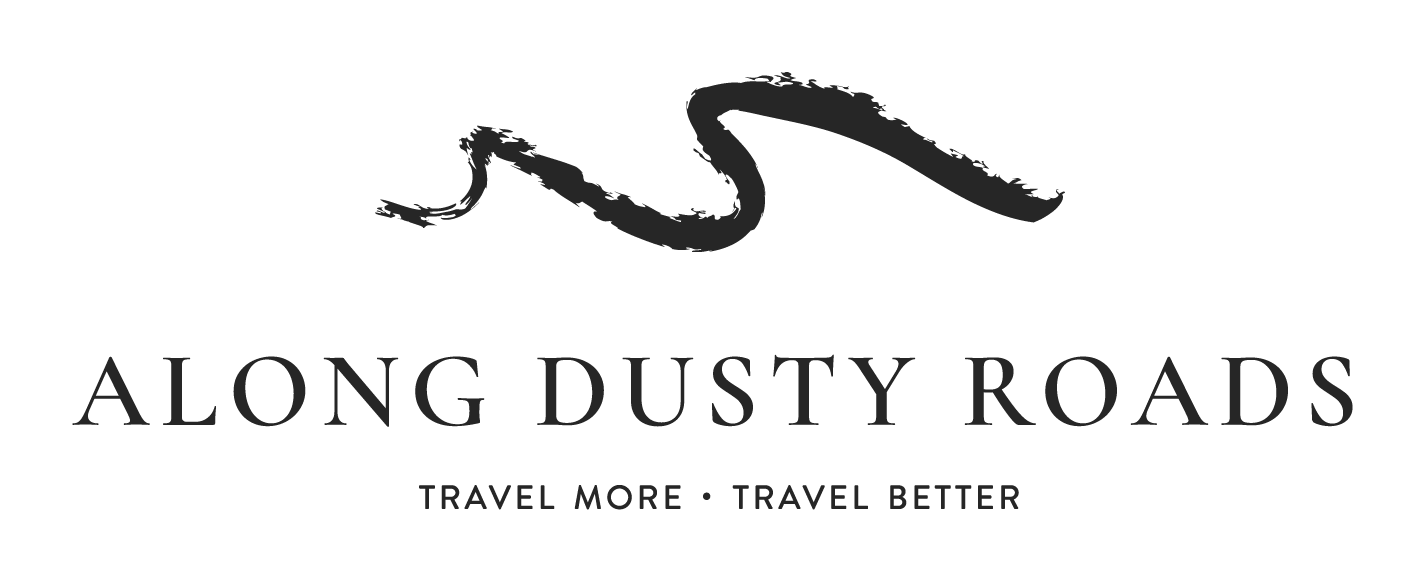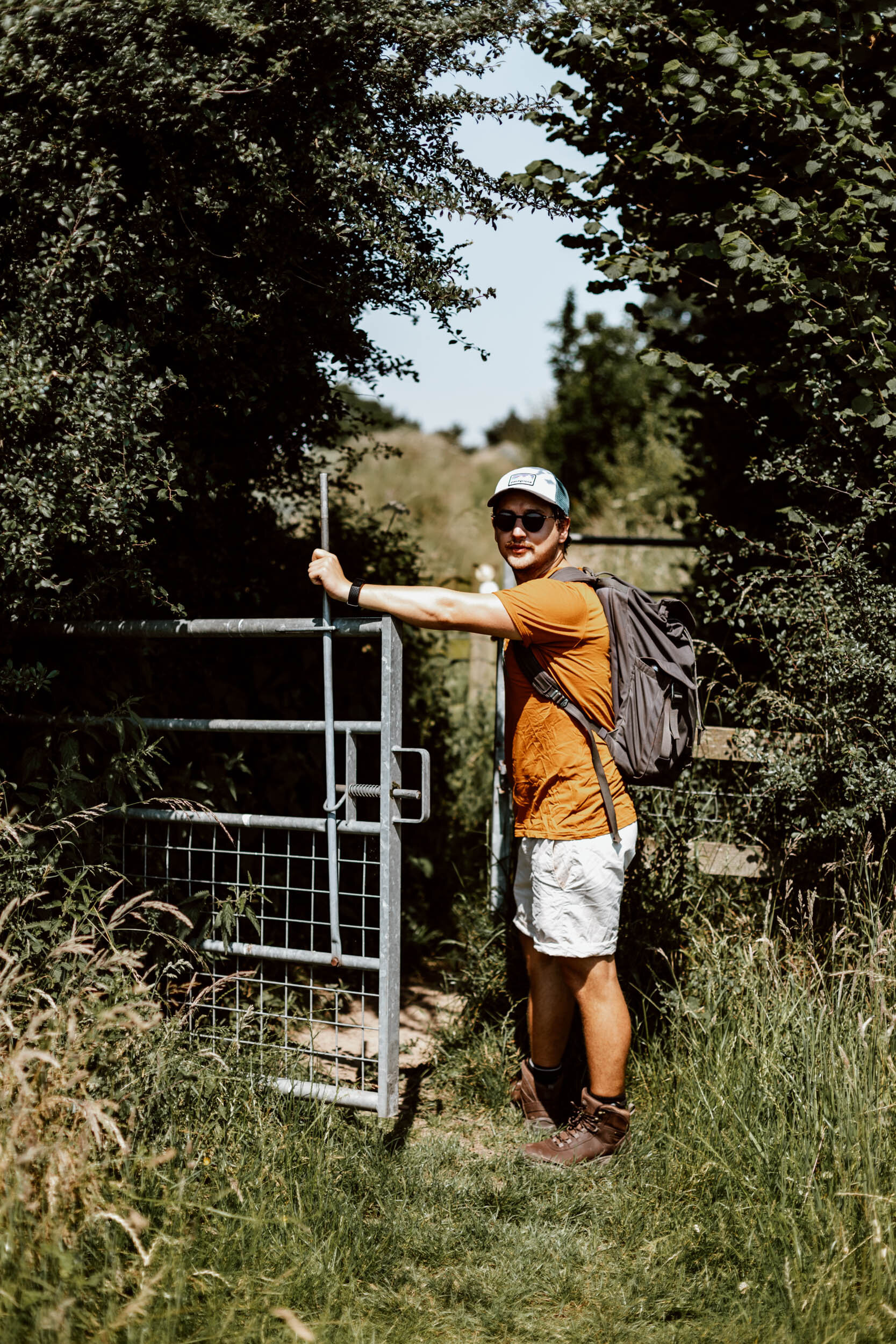The Countryside Code has recently been updated to encourage more visitors to the outdoors, and remind everyone of their responsibilities to nature and each other.
One silver lining of the last twelve months is that more people are enjoying Britain’s great outdoors, with millions having developed a real dependence and appreciation of the freedom and health benefits of green spaces.
With the inability to go anywhere else, many have also considered domestic holidays and staycations in the countryside or national parks for the first time.
This is a great thing.
However, it also resulted in a clear and worrying rise in anti-social behaviour, litter, and irresponsible actions that have a short and long-term negative impact on our shared wild spaces, as well as those we share them with.
Due to this, the government issued an updated Countryside Code for England & Wales in April 2021.
From the language in the announcement and new Code, it's clear that the government wished to communicate that this was an update focussed on encouraging and embracing the newfound love or dependence upon the outdoors.
The flip-side to this is that it also had to acknowledge this new relationship with nature was toxic, with far too many people using green spaces as a toilet, a party venue, a rubbish bin, barbecue pit, a garden for their dogs, a free holiday camp, or a petting zoo.
In this article, we wanted to raise awareness of the Countryside Code and its importance, provide you with access to the official documents for the updated 2021 Code, summarise the key changes on your rights and responsibilities, and provide some brief personal thoughts on what they could have done better.
What Is The Countryside Code?
Introduced in 1951, it's set of simple principles to encourage responsible behaviour by everyone enjoying the outdoors. It's had a few different names and revisions, but the essence of its advice has always been to foster care for the land and environment, respect for others and nature, and adherence to a few basic rules and laws.
Note that the Countryside Code applies to England & Wales only. Although many of the principles remain the same, Scotland has a very different (better) legal stance on the 'right to roam' and trespass. For more information on the Scottish Outdoor Access Code, read this.
Northern Ireland also has its own version.
Why Is It Important?
The countryside and rural spaces are not simply for pleasure, exercise, or relaxation, but also a home for millions and a working environment for farmers and other agricultural workers. Ensuring a mutually beneficial co-existence and understanding of rights and responsibilities between them and those visiting from towns and cities, is crucial.
Further, if the outdoors are an inclusive, positive, safe, clean and respected shared space for all, it just makes everything and everyone better off in the long run.
Unfortunately, not all act in a way which ensures or encourages that.
From worrying livestock to pollution, barbecues and bad parking, to habitat damage and dog shit, irresponsible behaviours and individual actions have a lasting impact on the natural environments we love and share. They not only harm the places we love, but make people less willing to venture out into them.
We'll take one little example from our adopted hometown to illustrate this.
There's a great spot by the river where you can sunbathe, swim, and socialise. You have to walk about 25 minutes from the town to reach it as it's quite remote, but there's a public path to and through it, and it's become really popular. There are no bins, sheep or cows are often in the unfenced field by the water, and there are no facilities to speak of. Local fishermen set up there, people kayak and swim in the river, and it's just great - we're so happy to have it.
Last summer, it essentially became Ibiza whenever the sun came out. There's absolutely nothing wrong with people enjoying it and having fun there (we do), but it became a bit mad. However, we'd have no problem with that - it is after all a lovely, accessible shared public outdoors wild space.
Unfortunately, a significant number of groups left behind massive piles of litter each night. Booze bottles, clothes and towels, cigarette butts, and all sorts of packaging. Disposable barbecues scorched the grass (barbecues aren't actually allowed there). It was disgusting.
If not for the efforts of local volunteers, this rubbish would have stayed there for days. Even without the clean up, a lot of the litter ended up in the river, caused harm to the animals, and ruined this local beauty spot for anyone else who wanted to enjoy it in the following days.
This was not an isolated incident across the UK.
Too many people in the outdoors last year, unfortunately, simply did not care about the outdoors or those they share them with.
The Key Changes in 2021 Countryside Code
Launched on 1st April 2021 (not a great date for publishing important changes guys), it was the first full update in over a decade (the government did publish a short update in July 2020 due to the evolving circumstances of the global health situation and rapid increase in footfall).
Under three pillars - Respect everyone, Protect the environment, Enjoy the outdoors - the government summarises the key changes of the 2021 Code as:
It now covers all green spaces, waterways, the coast and even parks in towns and cities.
Advising people to ‘be nice, say hello, share the space’ as well as ‘enjoy your visit, have fun, make a memory’.
A reminder not to feed livestock, horses or wild animals.
To stay on marked footpaths, even if they are muddy, to protect crops and wildlife.
Information on permissions to do certain outdoor activities, such as wild swimming.
Clearer rules for dog walkers to take home dog poo and use their own bin if a there are no public waste bins.
A refreshed tone of voice, creating a guide for the public rather than a list of rules.
You can read the full 2021 Countryside Code here.
What Could They Have Done Better?
If you've read our 10 Ways To Not Be A Dickhead in The Outdoors, you'll know that we naturally support most of these rules - especially the 'say hello' one which is just an unwritten rule of any hike or walk in Britain! Indeed, many are carried over from previous iterations of the Countryside Code and will not be a surprise to anyone who spends time on trails or walks.
Applying the code to all outdoors spaces - rather than simply walking trails or national parks - is a positive step to encourage a sense of shared responsibility and appreciation for all our shared outdoor environments (just see the despicable scenes left after the first days of ‘reopening’ in British parks last month - truly appalling that so many people across the country just don’t care or know better).
It's also clear from the update that promoting the countryside as an inclusive, accessible, and shared space for all was a clear mandate; we welcome this aspect and it's vital that people of all backgrounds are encouraged to feel comfortable in the outdoors and to benefit from them.
However, the emphasis on tone and welcoming has made several of the changes miss the mark or open to interpretation. Further, the shortened leaflet version - which will be the most read and visible across England & Wales- is woefully unspecific and misses out most of the really important points covered in the extended version.
For example, the "clearer rules for dog walkers" in the short document boils down to "always keep dogs under control and in sight". The full code does go on to talk about making sure a dog is kept on a lead where signs require it and being confident it will return if called, but that isn’t the the lead (pun intended) takeaway people will get when they see Code. We adore dogs, but owners very often ignore existing signs to keep them on a lead in nature reserves (which are there for a good reason), and this gives too much leeway.
Similarly, barbecues get far too much of a pass. It's abundantly clear from the last year that lots of groups think they can just put down a disposable barbecue anywhere, regardless of what the signs say or the conditions, and the main bullet point is only “take care with BBQs and do not light fires”. Why not say ‘only have BBQs in designated areas’ or “BBQs are banned unless otherwise indicated”?
As we write this, there’s a story just appeared on the BBC about two fires being caused by disposable BBQs in the Peak District…
Personally, this is actually a drawback of applying this new code to 'all' outdoor spaces, because behaviours, expectations, and consequences on certain actions or indiscretions will be very different in a local park in the city in comparison to a a beauty spot in the Lake District.
If everyone cared and followed the existing local signs on dog leads, barbecue bans, or private land, then everything would be hunky dory and there would be no need for this update - but the fact of the matter is that too many people do not. In attempting to strike a different, friendlier tone in the new Code (i.e. “make a memory”), some of the behaviours which are directly causing most damage and disturbance to environments and other visitors are not clearly criticised or positively advised against.
And, therefore, is the right audience (the minority of people who already act in irresponsible ways) being reached or spoken to?
The sub-headline of the leaflet perhaps explains a fundamental issue. It reads, ”Your guide to enjoying parks and waterways, coast and countryside”.
Perhaps a better approach to encourage good individual behaviour and shared responsibilities, given ‘enjoyment’ is much easier with an illicit BBQ and a few cans, would have been to replace ‘enjoying’ with ‘sharing’, ‘protecting’, or ‘helping to save’. Or following the example of hotels tweaking the wording to encourage guests to reuse their towels, and making it clearer that these rules are followed by the vast majority.
To be clear, everyone should be encouraged to visit, embrace and enjoy the outdoors: that is their right. But that should not come at the cost of muscularly outlining the clear shared responsibilities which comes with that right.
How Can You Help?
Once you know the rules - and embrace them - the next most important step is raising awareness of the Countryside Code.
Knowing and undestanding good behaviours in the outdoors is one thing, but it's futile if the messages do not reach the right people. There is a requirement for the government to do more - much more - about fostering a shared love and responsibility for the outdoors amongst everyone. Mandatory and free annual excursions for all primary and secondary school kids into nature would be a great step and do most of the heavy-lifting to 'future proof' the outdoors. Without that personal connection with the countryside, why will people care to protect it? After all, we can’t expect everyone to automatically understand how to act in the outdoors if they’re never introduced to them or taught about rights and responsibilities.
Things like shutting gates (or not shutting open gates) or keeping your dog on a lead in a big open field may, after all, not make immediate sense.
(Sidenote: a review of the right to roam in England would also be welcomed, given how much of the country remains off limits).
The problem is that many people who know or take an interest in the Countyside Code, and how to act responsibly, respectfully, and sustainably when on a hike or a walk, are probably doing many of these things already.
The message and principles really need to reach the minority of people who have acted in such irresponsible ways the last year: the dirty campers, the mass-litter leavers, the scorched earth BBQers, those who think leaving little black bags of dog poo dangling off a branch is acceptable or feeding cows crisps.
Similarly, ensuring that the important messages of the 2021 Countryside Code are widely communicated across all media this year would do a great deal to raising awareness - and emboldening those of us who feel like unpaid stewards sometimes.
Therefore, if you can, please share this article! Talking or caring about these little issues can make one appear pedantic or fusty, but it should not.
If you see irresponsible or illegal behaviour in the outdoors, it is important to call it out respectfully. Unfortunately, this is not always listened to or respected - and there will unfortunately be moments where it's actually in your best interests in the moment to simply grit your teeth, tut, and keep on walking.
Never put yourself in a potentially dangerous situation if you're on your own.



















